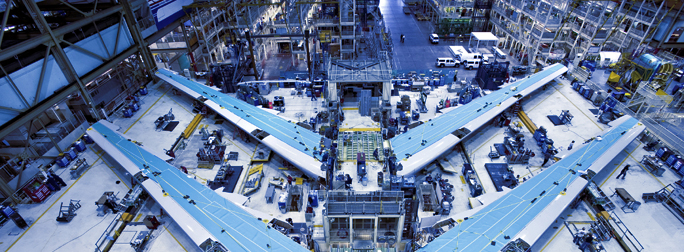 To support the application of additive layer manufacturing in aerospace, UK’s Aerospace Technology Institute (ATI) is going to invest £1.5m in a joint industry and ATI funded, collaborative R&D project, led by GKN Aerospace. Metalysis, the specialist metals technology company, will be one of the partners in this programme, with Phoenix Scientific Industries Ltd. and The University of Leeds. Metalysis will increase the production of its high quality, low-cost titanium powder for use in aerospace additive manufacturing for the first time with a commercial partner. The project is backed by the country’s innovation agency, Innovate UK. Metalysis’s technology produces titanium powder directly from rutile using electrolysis in one step, significantly reducing the cost of metal powder production. This method of producing titanium powder could enable its wider use in aerospace and beyond, where previously its use has been prohibitively expensive. Furthermore, additive manufacture increases the functional performance of the parts – for example by making them lighter – and brings additional cost benefits by reducing the quantity of material required and the level of waste.
To support the application of additive layer manufacturing in aerospace, UK’s Aerospace Technology Institute (ATI) is going to invest £1.5m in a joint industry and ATI funded, collaborative R&D project, led by GKN Aerospace. Metalysis, the specialist metals technology company, will be one of the partners in this programme, with Phoenix Scientific Industries Ltd. and The University of Leeds. Metalysis will increase the production of its high quality, low-cost titanium powder for use in aerospace additive manufacturing for the first time with a commercial partner. The project is backed by the country’s innovation agency, Innovate UK. Metalysis’s technology produces titanium powder directly from rutile using electrolysis in one step, significantly reducing the cost of metal powder production. This method of producing titanium powder could enable its wider use in aerospace and beyond, where previously its use has been prohibitively expensive. Furthermore, additive manufacture increases the functional performance of the parts – for example by making them lighter – and brings additional cost benefits by reducing the quantity of material required and the level of waste.
The scope of this project, TiPOW (Titanium Powder for Net-Shape Component Manufacture), is to increase the production of high quality low-cost titanium powder for additive layer manufacturing and develop the UK’s skills and expertise in the sector. This will ensure UK competitiveness through developing additive layer manufacturing capabilities and raw material production in the form of low-cost titanium powder.
The successful use of additive manufacture in the aerospace supply chain, using Metalysis’s low-cost titanium powder, will also enable the expansion of its use in new applications across the medical, automotive, defence and energy sectors. Russ Dunn, Senior Vice President Engineering & Technology explains: “To date research into AM has focused largely on evolving the processes we will require to enter full scale production but if these processes are to make a significant breakthrough, the quality, repeatability and cost of the material we use will be critical. Working with our industrial and academic partners in the TiPOW programme and leveraging expertise from across GKN, we will begin the process of addressing this issue.”
Dion Vaughan, chief executive of Metalysis said; “Titanium made by the Metalysis process could replace the current use of aluminium and steel in many products, bringing many performance advantages. This project will demonstrate its potential in the additive layer manufacturing of metal components, bringing down the cost of production, manufacturing and increasing environmental performance of aerospace and beyond.”



